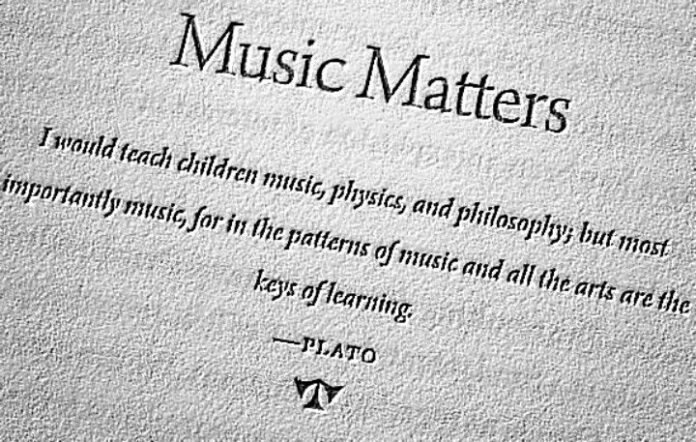Throughout history, music has always been an important adjunct to ritual and drama and has been credited with the capacity to reflect and influence human emotion. Popular culture has consistently exploited these possibilities, most conspicuously today by means of radio, film, television, musical theatre, and the Internet.
Every community, tribe, and tongue has always found a way to create music. It is as important as learning how to farm or defend themselves. This brings us the question: why music is so important to us as human beings?
In every culture of the world, music is a social activity in which almost everyone participates. Music highlights communal values and brings people together in diverse ways. Many events of importance are celebrated with music, whether it is a marriage, a birth, or a ceremonial rite of passage.
Historically, religions have often been catalysts for music. The Yoruba people of West Africa are known for their advanced drumming tradition, especially using the dundun hourglass tension drums. Yoruba folk music became perhaps the most prominent kind of West African music in AfroLatin and Caribbean musical styles; left an especially important influence on the music used in Santería practice and the music of Cuba.
The Vedas of Hinduism immensely influenced Indian classical music, while the Five Classics of Confucianism laid the basis for subsequent Chinese music. Following the rapid spread of Islam in the 6th century, Islamic music dominated Persia and the Arab World, and the Islamic Golden Age saw the presence of numerous important music theorists.
Music was written for and by the early Christian Church properly inaugurating the Western classical music tradition, which continues into medieval music where polyphony, staff notation and nascent forms of many modern instruments developed.
In addition to religion or the lack thereof, a society’s music is influenced by all other aspects of its culture, including social and economic organization and experience, climate, and access to technology. Many cultures have coupled music with other art forms, such as the Chinese four arts and the medieval quadrivium. The emotions and ideas that music expresses, the situations in which music is played and listened to, and the attitudes toward musicians and composers all vary between regions and periods. Many cultures have or continue to distinguish between art music (or ‘classical music’), folk music, and more recently, popular music.
10 Benefits of music in today’s world
Music can improve mood, decrease pain and anxiety, and facilitate opportunities for emotional expression. Research suggests that music can benefit our physical and mental health in numerous ways. Music therapy is used by our hospice and palliative care board-certified music therapist to enhance conventional treatment for a variety of illnesses and disease processes – from anxiety, depression, and stress to the management of pain and enhancement of functioning after degenerative neurologic disorders.
- Music is good for the heart: Research has shown that blood flows more easily when music is played. It can also reduce heart rate, lower blood pressure, decrease cortisol (stress hormone) levels and increase serotonin and endorphin levels in the blood.
- Music elevates mood: Music can boost the brain’s production of the hormone dopamine. This increased dopamine production helps relieve feelings of anxiety and depression. Music is processed directly by the amygdala, which is the part of the brain involved in mood and emotions.
- Music reduces stress: Research has found that listening to music can relieve stress by triggering biochemical stress reducers.
- Music relieves symptoms of depression: When you’re feeling down in the dumps, music can help pick you up – much like exercise.
- Music stimulates memories: There is no cure for Alzheimer’s disease or dementia, but music therapy has been shown to relieve some of its symptoms. Music therapy can relax an agitated patient, and improve the mood and open communication in patients.
- Music manages pain: By reducing stress levels and providing a strong competing stimulus to the pain signals that enter the brain, music therapy can assist in pain management.
- Music eases pain. Music can meaningfully reduce the perceived intensity of pain, especially in geriatric care, intensive care, or palliative medicine.
- Music helps with weight loss: Playing soft music in the background (and dimming the lights) during a meal can help people slow down while eating and ultimately consume less food in one sitting.
- Music increases workout endurance: Listening to those top workout tracks can boost physical performance and increased endurance during a tough exercise session.
- Music connects us to the spiritual: Most times, music is used as a connection to the spiritual world. Every single religion in the world used music as a way to reach the world. People have also used music individually to reach their deity or creator in situations of emotional stress or helplessness.
Written By Babarinde Williams

Comments are closed.